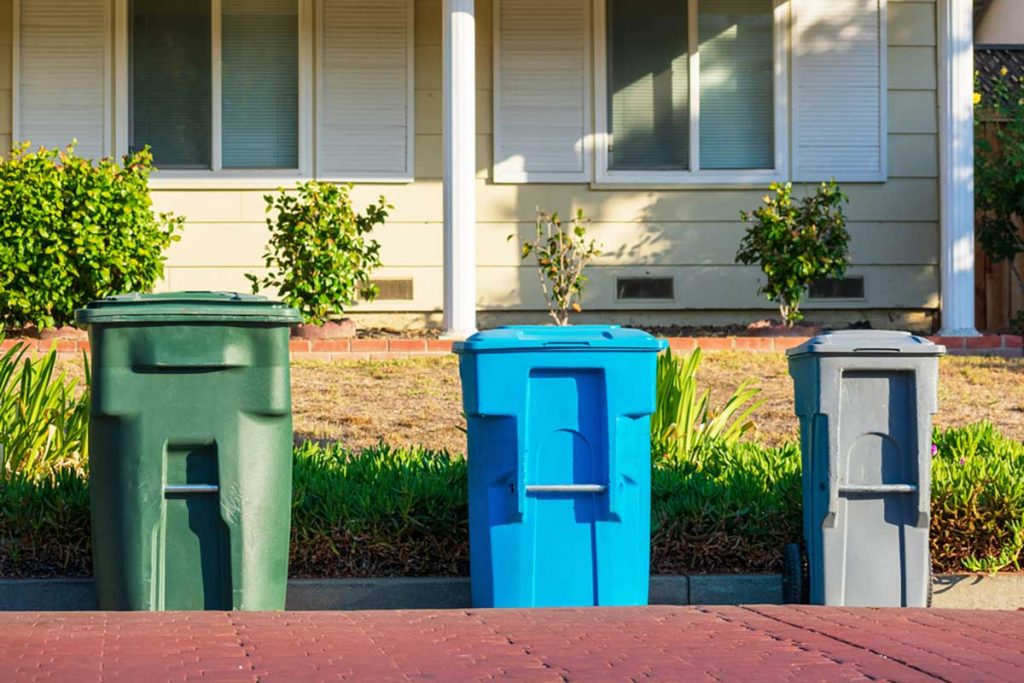
A group of 67 recycling, manufacturing and environmental organizations sent a letter urging Congress to pass two recycling-related bills before the year ends. | Michael Vi/Shutterstock
Trade associations are rallying behind two pieces of stalled federal legislation that would improve rural recycling and composting access, boost data collection and more. The push comes before the 119th Congress convenes in January.
The Recycling and Composting Accountability Act and the Recycling Infrastructure Accessibility Act would provide federal support for local recycling programs across the country and for diversion data reporting. They were introduced by Sen. Tom Carper, a Democrat from Delaware, Sen. Shelly Capito, a Republican from West Virginia, and Sen. John Boozman, a Republican from Arkansas.
RIAA directs the U.S. EPA to establish a grant program to fund projects improving recycling access at the state, tribal or local level. RCAA directs EPA to collect a variety of new data, including determining how much material that could go back into its same product type as recycled content is instead being lost to disposal or lower-use end markets. EPA would also produce a report on the feasibility of the country implementing a national composting strategy; would create a national inventory of MRFs and what they accept; collect baseline data on the number of recycling programs – curbside, drop-off or other – nationwide and what they accept.
First introduced in 2022, both bills received unanimous, bipartisan Senate approval that year but stalled in House subcommittees. They were reintroduced in the 118th Congress, which convened in January 2023. The Senate again unanimously approved the bills in March 2024, but the legislation again stalled in the House.
In a Nov. 19 letter, a group of 67 recycling, manufacturing and environmental organizations called for quick action before this Congress comes to a close. Addressed to House and Senate leaders, the letter lays out a case that the bills have bipartisan political support and advocacy from such diverse groups as plastics manufacturers and environmental nonprofits.
“Given the widespread support for this legislation, we are calling on congressional leadership to ensure these bills are enacted into law before the end of the year,” the letter states. It also points out the different areas of political interest the legislation touches. Recyclable materials being lost to landfill include “materials designated as critical by the Department of Defense,” the group wrote. And “beyond recycling’s inherent environmental advantages, manufacturers rely on recycled material to meet demand across sectors.”
Familiar inaction at the federal level
Why has the lack of House action been bipartisan, with no movement during the Democrat-controlled House in the 117th Congress and the Republican-controlled House in the 118th? There’s no clear answer, other than perhaps the bills simply not rising as a priority for House lawmakers.
“It’s difficult to say what’s motivating the House, but I can tell you we’ve been encouraged with the discussions we’ve had and are hopeful – but by no means certain – we can get something done on these bills in the current Congress,” Katie Rosebrook, a spokesperson for the Aluminum Association, told Resource Recycling. “We believe the House wants to support American aluminum manufacturing by helping ensure access to recycled metal.”
The lack of action follows a familiar pattern for federal recycling legislation, which rarely sees significant movement. That’s been the case with more aggressive legislation like the Break Free From Plastic Pollution Act, which was reintroduced again in 2023 but failed to advance; the Protecting Communities from Plastics Act, which was reintroduced this year but has not moved out of committee; and the Zero Waste Act, which hasn’t seen movement since it was reintroduced in 2021.
It’s also the case for milder grant funding legislation like the COMPOST Act and Zero Waste Food Act, which saw no movement beyond introduction and referral to committee. One exception is the Save Our Seas Act 2.0, which was approved in 2020 and included various grant opportunities for municipal recycling.
Instead, federal funding for materials recovery efforts of late has come through broader-reaching legislation, like the Inflation Reduction Act and the Bipartisan Infrastructure Law. These bills have bolstered materials recovery efforts through clean energy tax credits, which have helped to enable development of new composting facilities, MRFs, end markets, battery recycling operations and more.
Renewed call comes amid Congressional changes
As for why advocates are renewing the call now, there are a number of factors. Passing the legislation now would avoid having to go through the same introduction pattern a third time. It also comes as one of the lead proponents, Carper, will retire in January.
Carper, a longtime recycling advocate whose support for materials recovery was recently highlighted by the Recycled Materials Association and Plastics Industry Association, himself issued a renewed call for the bills in conjunction with America Recycles Day, observed Nov. 15. Carper wrote that he and the bills’ cosponsors “are working hard to get them through the House of Representatives and to the President’s desk.”
Additionally, industry stakeholders may be anticipating even less interest in recycling-related legislation in the upcoming legislative landscape, said David Biderman, a waste and recycling consultant and former trade association president.
“The recent efforts around these bills is because the clock is running out on the 118th Congress, plus the results of the November elections will usher in an administration far less concerned about recycling than the Biden Administration,” Biderman told Resource Recycling. “The Republican-led House and Senate that will convene in January 2025 will have many higher priorities than this legislation.”

